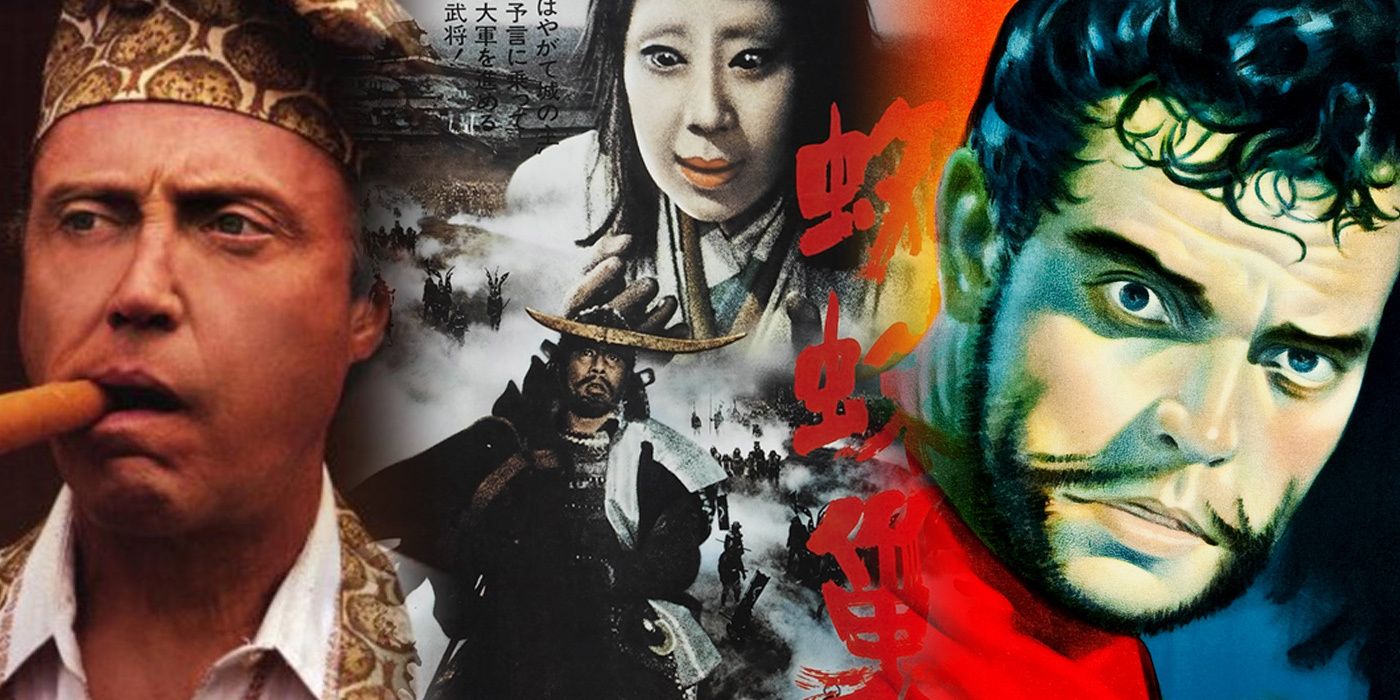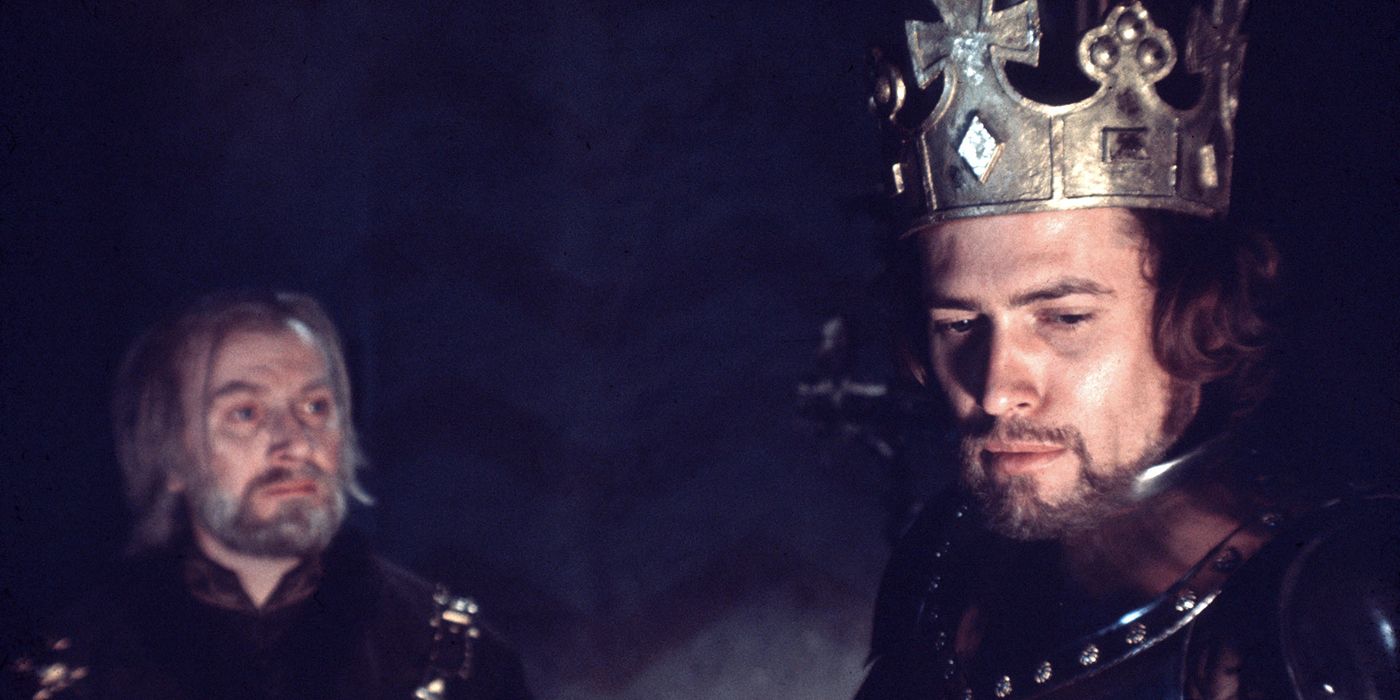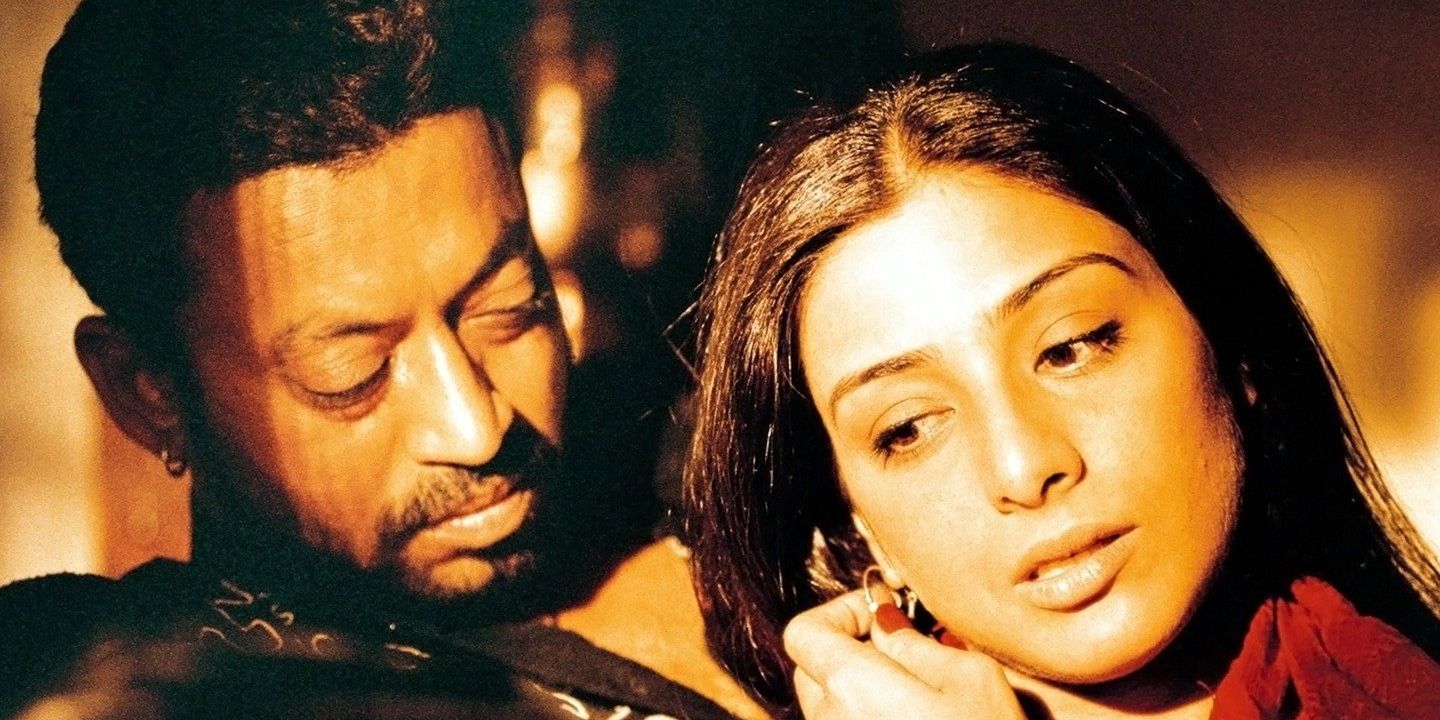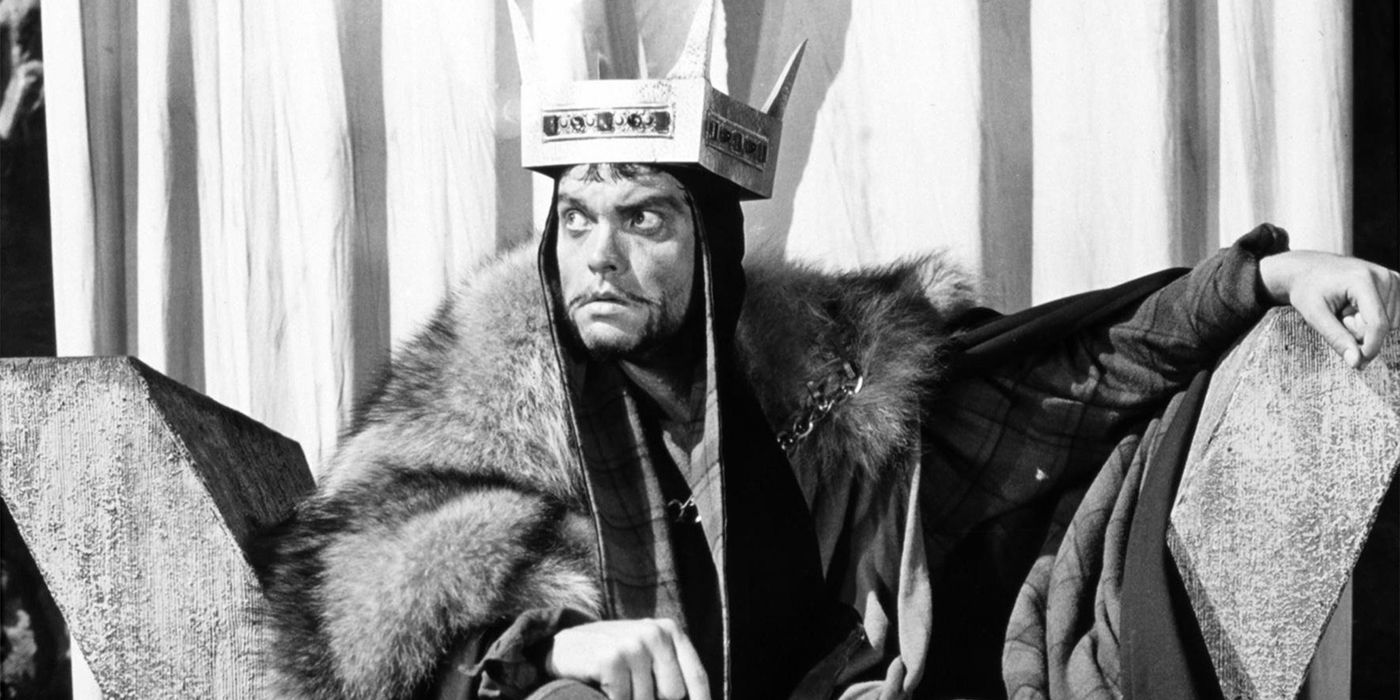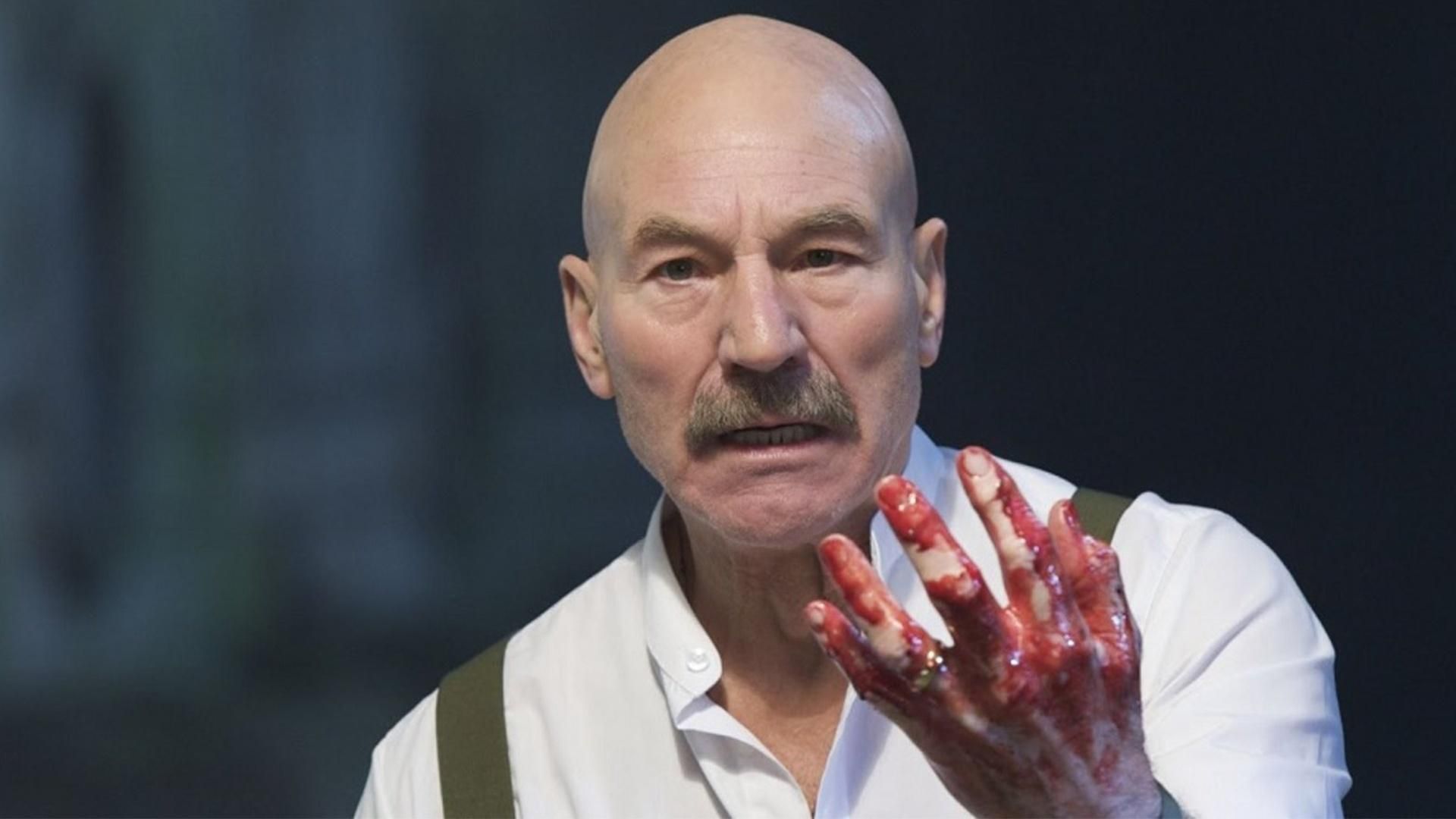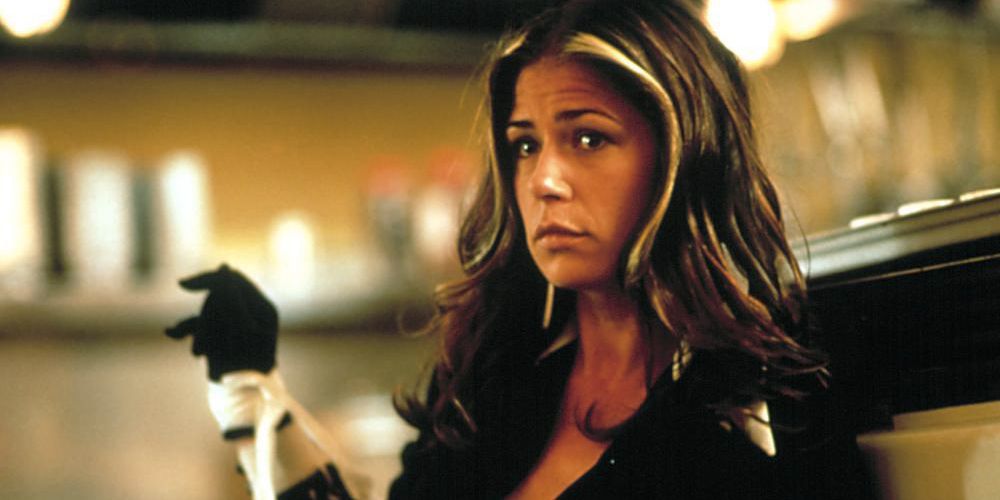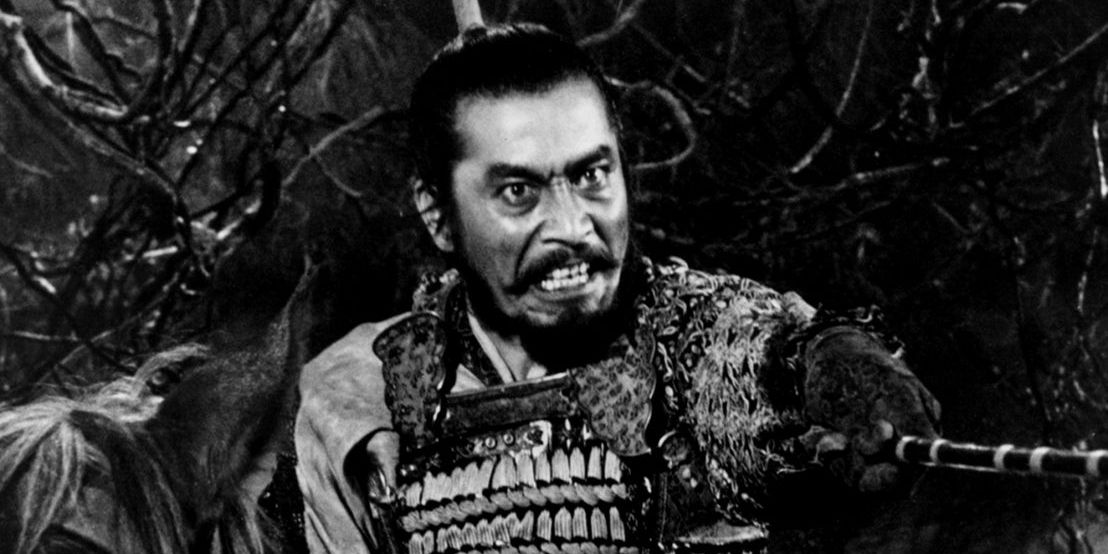It's one of William Shakespeare's greatest tragedies, a play with a name so synonymous with personal disaster that you can't even say it out loud in the theater world, simply referred to as "The Scottish Play" or "The Bard's Play". Like many Shakespeare plays, Macbeth has proven to be incredibly flexible, having been staged in countless ways. In the '70s, Ian McKellan and Judi Dench played Macbeth and Lady Macbeth in an avant-garde-style production, while Alan Cumming played every part in an amazing one-man show, recasting the whole story as taking place in the mind of a mental patient.
In film, the play has been adapted in straightforward adaptations, or as a muddy, dirty period piece, or as a Bollywood crime thriller. In light of Joel Coen's stylized take on The Tragedy of Macbeth with Denzel Washington and Frances McDormand in the lead roles, here's a look at the 7 best cinematic adaptations of Macbeth, ranked.
7. Macbeth (1971)
The basic story of Macbeth remains essentially unchanged throughout most of the filmed adaptations, and Rosemary’s Baby director Roman Polanski's version hews close to the text. Macbeth (Jon Finch), the Thane (or lord) of Cawdor, wins a decisive battle for King Duncan (Nicholas Selby), and as he and his friend Banquo (Martin Shaw) return from the war, three witches prophesize that Macbeth will next be awarded Thane of Glamis, then become king. As for Banquo, he will “beget kings.” Macbeth and his wife Lady Macbeth (Francesca Annis) collude to assassinate Duncan and take the throne. It all ends in tears, like any good tragedy.
Polanski’s first film after the tragic death of his wife Sharon Tate at the hands of Charles Manson's deranged followers is one of the bloodiest, gloomiest Shakespeare adaptations ever made. Shot on location in some forbidding places around the British Isles, Polanski's Macbeth aimed for bleak period detail. It's a bloody, brooding film with strange surrealistic touches. Polanski includes an unnecessary amount of nudity for a Shakespeare film, especially in the scene where Macbeth palavers with the entire coven of witches. Still, this version has held up quite well, and likely represents the opposite end of the visual spectrum from what Coen and company have up their sleeve.
6. Maqbool (2003)
The notion that all modern storytelling owes a blood debt to Shakespeare is best left for painfully earnest academic debate. Still, it’s a testament to the universality of many of the Bard’s plays that their plots are flexible enough to withstand a variety of settings. The 2004 Indian crime thriller Maqbool is one such example, with the late, great Bollywood star Irrfan Khan as the title character.
The chief lieutenant of a crime lord, Maqbool is also having an affair with his boss' mistress, Nimmi (Tabu). The structure of Macbeth works surprisingly well when overlaid onto a Bollywood gangster flick, with Irrhan Khan proving effective and convincing as the ambitious Maqbool, who quickly finds himself in over his head. Maqbool successfully streamlines some of the characters’ motivations, and deftly switches characters around. Maqbool wants to be with Tabu and out from under his boss’ thumb, for example, and the witches are transformed into a pair of corrupt cops who predict Maqbool’s moves.
5. Macbeth (2015)
Assassin's Creed director Justin Kurzel is lucky Marion Cotillard exists. Her icy performance as Lady Macbeth is the most compelling part of this straightforward, period-set adaptation starring Michael Fassbender. Kurzel uses a dialogue-free prologue sequence to make implicit what Shakespeare's text hints at, the Macbeths had a child who died. “I have given suck, and know/How tender ‘tis to love the babe that milks me,” as Lady Macbeth tells her husband in Act 1, Scene 7. Macbeth wavers in their plan to murder King Duncan, and his wife must steel his resolve, telling him that she’d have killed her own baby if it meant following through with such a serious task.
Kurzel’s film is sometimes too earnest and baroque in its pacing, but the cast, which includes David Thewlis as King Duncan, is uniformly excellent. There is evidence in the text that the Macbeths had been considering their move on the throne for some time before the play begins, and Kurzel’s version provides some tragic motivation to make us believe it. The whole thing revolves around Cotillard’s brilliant Lady Macbeth, and she is nothing less than captivating every time she appears.
4. Macbeth (1948)
Director and star Orson Welles’ Macbeth was only the fourth American-produced film adaptation of a Shakespeare play and helped set a template for decades. Welles crafts a very effective, straightforward interpretation of Macbeth, even if everyone speaks with less-than-convincing Scottish brogues. A tight budget forced Welles to use whatever costumes he could find, resulting in an odd, otherworldly atmosphere. The imaginative cinematography utilizes some tight framing to make the most out of the scant resources. The look of The Tragedy of Macbeth seems to have been at least partially inspired by Welles' version.
Most Shakespeare adaptations change things up, (with the exception of Kenneth Branagh’s four-hour Hamlet from 1996, which includes absolutely every line of dialogue from every collected version of the play over the centuries), and Welles was of course no different. He adds a character called the Holy Man, who appears here and there as a symbolic counterpoint to the pagan witches. Welles also wisely put scenes on film which happen off-stage in the play, such as Lady Macbeth’s suicide.
3. Macbeth (2010)
Patrick Stewart takes on the lead role in director Rupert Goold's 2010 television adaptation of his own celebrated 2007 stage production. Stewart's Macbeth might be the most militarized and masculine characterization and is also one of the most convincing portrayals ever filmed. Set in the modern era, the production design seems to evoke 1960s Romania, when a communist dictatorship came to power.
Like many theater directors, Goold’s style on film feels a bit stagebound, with the story taking place in very few exteriors. This all works in Stewart’s favor, as his tough attitude cracks under pressure toward the end. One of the centerpieces of any version of Macbeth is the famous “Tomorrow, and tomorrow, and tomorrow…” speech from Act 5, Scene 5, which Macbeth delivers after hearing of his wife’s death. Stewart breaks down during the scene, but not completely. His is one of the most controlled and captivating performances in any version of the play.
2. Scotland, PA (2001)
There are plenty of modernized and updated Shakespeare adaptations, such as 10 Things I Hate About You (Taming of the Shrew) and 2001's O, a prep-school update of Othello starring Josh Hartnett and Mekhi Phifer. One of the best and funniest is Scotland, PA, a dark comedy revamp of Macbeth, set in a fast-food restaurant in a Pennsylvania small town. When Joe “Mac” McBeth (James LeGros) is passed over for a promotion at the fast-food joint owned by Norm Duncan (James Rebhorn), three stoned hippies give him a vision of a future where Mac takes over the restaurant and puts in one of the first fast-food drive-through windows.
Not every Shakespeare tragedy would work as a comedy (try imagining where to put the laughs in Coriolanus), but Scotland, PA makes a strong case for giving it a try. The committed cast includes Christopher Walken as Investigator McDuff, who eventually unravels the plot as McBeth and his wife Pat (the brilliant Maura Tierney) lose their minds under the pressure of guilt and shame. There really should be more dark comedy Shakespeare tragedies. Preferably set in the ‘70s, and starring Walken.
1. Throne of Blood (1957)
The great Akira Kurosawa sets Macbeth in feudal Japan, with General Washizu, played by Kurosawa's favorite star Toshiro Mifune, overthrowing his sovereign Lord Tsuzuki, following an evil spirit’s prophecy. Kurosawa's Throne of Blood changes some key plot points, leans on the supernatural aspect of the story, and is one of the greatest screen versions of the story ever made.
Kurosawa does away with Shakespeare’s text, shedding the Bard’s trademark dialogue in favor of a narrative full of intrigue and a style, partly influenced by the Noh theater tradition. Kurosawa’s bold visual flair culminates in a devastating final act, beautifully rendered in crisp black and white by cinematographer Asakazu Nakai. Unlike, say, The King on Netflix, which was an attempt to adapt portions of Shakespeare’s Henry IV plays and Henry V without any of the dialogue, Throne of Blood transcends its trappings thanks to Kurosawa’s understanding of Macbeth’s real tragedy.
Shakespeare raises questions of fate versus free will in Macbeth. Macbeth is a noble, loyal warrior when the play begins. He is the hero of his own story but becomes a villain without realizing it, as hubris and deadly ambition drive him and Lady Macbeth into the realm of murder. As arrows slam into either side of Washizu’s head in Throne of Blood, we wonder if he, like Macbeth, like “Mac” McBeth, like Maqbool, would have tread this path if not for the prophecy pointing the way. To what degree are we in control of our own choices? The tragedy of Macbeth begs an answer, as it has for more than 400 years.

